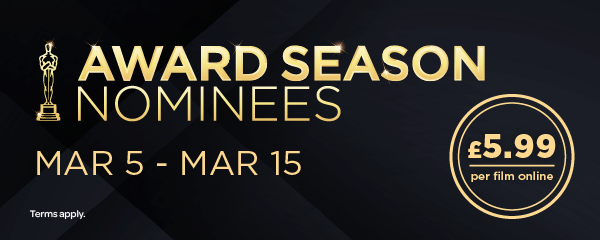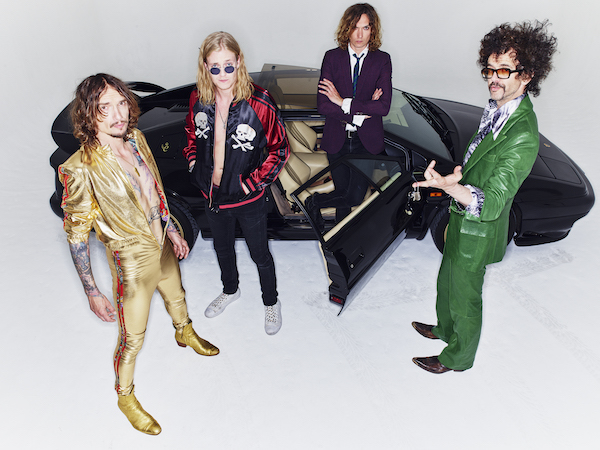
Incredibly, it's been 20 years since The Darkness stormed the charts with the exuberant 'I Believe in a Thing Called Love'. The outlandish British glam-rockers are now the subject of the long-gestating rock documentary Welcome to the Darkness. Showing at Cineworld for one night only this November, the film takes an intimate look at the various members of the band in all their glory and fallibility.
Who better to relay the story of The Darkness than frontman Justin Hawkins? In the last couple of years he's secured a whole new audience via his podcast Justin Hawkins Rides Again and he now kindly makes time to talk to Cineworld about his achievements with The Darkness, his favourite rock doc (it probably isn't one you'd expect) and the re-issuing of the band's break-out album Permission to Land.
As one would expect, Justin makes for a fun, lively and refreshingly candid interview subject. Scroll down beneath the image to discover his reminiscences and insights.
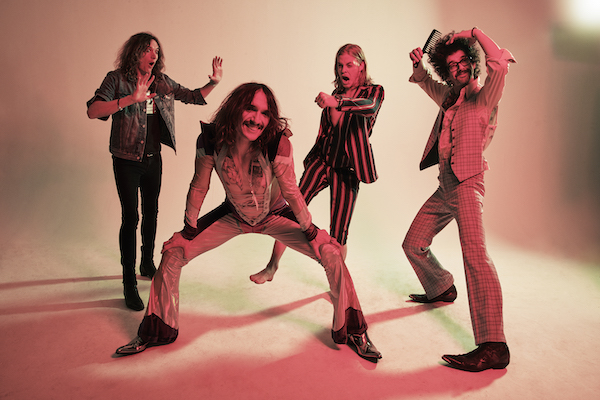
So, I'm of the generation that remembers when 'I Believe In a Thing Called Love' first came out...
What year were you born?
1987, so I'm 36.
1987 – what a year for music that was! That was a great year. Stuff like Appetite for Destruction. Permanent Vacation. There was a really good Cult album out that year as well - I think it was Electric? Yes, it was. Sorry, I'm getting carried away!
Not at all! Were there any specific releases from that year that influenced you and The Darkness?
There were maybe two specific years in the 1980s that were really great for rock: 1984 and 1987! '84 saw Bryan Adams' Reckless. Van Halen was also '84. There was loads of really good stuff in '84. Foreigner's album 4 was also that year. That's an amazing record. The list is endless.
So, why is now the right time for The Darkness film?
Well, the first thing to say is we made it years ago. And just to clarify: we didn't make it! We're just in it [laughs] We're just the protagonists – and occasionally the antagonists – of it.
We only wanted to make the documentary in the first place because of director Simon Emmett. He's a photographer, a very talented one at that, and he once made a movie about Barnet football club. It was about them trying to hold onto their stadium and how the desire to keep the stadium depended on them staying in the football league. It was a character study and a look at the culture around the club.
It was so interesting. It was like seeing weird people doing strange stuff in strange circumstances. The actual football was the backdrop for this character study. I thought that was a much more interesting way to approach a documentary about music than anything I'd seen.
There are so many of these music docs now like the Bros one recently. Very few of them are challenging the usual tropes of what a documentary looks like. But I thought if anything could do it, it was Simon because of his work with Barnet. The film is called Underhill and it's very good.
So, we started working with him and sometimes he was filming stuff whereas other times it was Sam Ford who was out with us filming. They were following us for about five years. They then needed to work with a production company to get the thing over the line and get it edited. There was so much material that they needed to pay money to someone to complete it.
Once they'd done it, the wider organisation around the documentary was keen to sculpt it into a more traditional piece of narrative: band arrives on the scene, singer does all the drugs, ruins his life, ruins the band, hiatus, comeback in pubs, bitterness and the usual. That's the story that everybody thinks they know about The Darkness but that doesn't tell you anything about who the characters are.
Even to me, that's boring. You know exactly what's going to happen, and it's usually some kind of pseudo-triumphant ending following some travails. That would bore the bejesus out of me. So, when I saw what the plans for the documentary were, I opted out. I didn't want anything to do with it [laughs] But then Simon battled and fought to get the edit released that was in line with his original vision.
There's weird stuff in it and that's what makes me proud. If you put a camera on us over the course of five years, some of it is going to be emotional, some of it is going to be funny, some of it's going to be dark. But the important thing is the characters. Take Frankie, for example – he's a weird guy [laughs] Not in a bad way! He's just unusual.
There's no point in making a film that reaffirms what people already know. And it isn't about the story anyway, it's about the people.
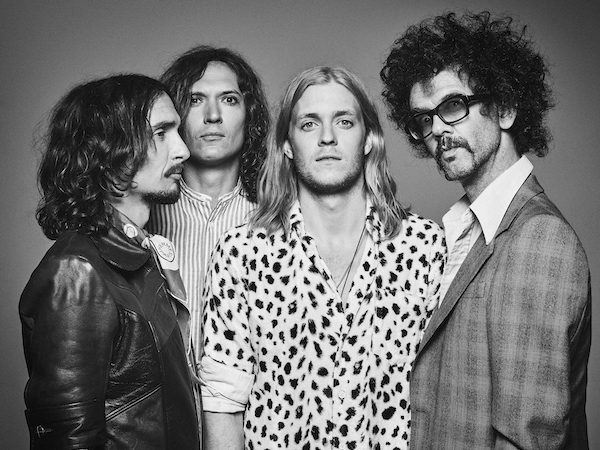
Is it cathartic to finally see the movie out there?
I'll be perfectly honest, I couldn't give a monkey's [laughs] Who has time for catharsis? I'm trying to make three albums at the same time, I'm doing my YouTube channel and I've got all kinds of s**t going on. I don't have time for catharsis. [laughs]
I'm happy for Simon, though. I would be very surprised if Simon ever wanted to make a documentary again. This has been very hard work for him. He's a dear friend. I really respect him as a photographer and I love him as a person. I'm so happy he's managed to get this done. It's his project. I'm just a bloke who's in a lot of the scenes.
It's great that it's over but I feel really happy for him. He deserves it. The film is going down well so good for him.
You mentioned that there are so many rockumentaries out there. Do you have any favourites that have challenged the usual mold?
For me, the only documentary that's of any import is This is Spinal Tap. I understand that's a mockumentary but no other cinematic release will come close to the reality of music. And it's a spoof.
I'm not in a band but I sense, as a spectator, that Spinal Tap is very close to the truth...
It's so close to the bone! There were people who watched it at the time, people like Jeff Beck, who were really upset by it. Evidently, Nigel Tufnell was based on him.
A lot of the experiences that the characters go through are exactly what it's like to be in a preposterous rock band, right down to the relationships with the labels and getting lost backstage. These are just things that happen. It's so well observed. It's a masterpiece. There will never be a documentary that comes anywhere close to it.
It's funny how something absurd can be more informative and truthful than something that's sober in its intent.
[laughs] Well, I'm glad that our documentary isn't a puff piece that's simply designed to stroke our egos. This is Simon Emmett's observations of what it's like to be around us. It's important to have that. I keep coming back to the Bros documentary because even though there is the odd moment of absurdity you do get the inevitable triumphant arc at the end.
The great thing about Spinal Tap is there's warmth in it and it's preposterous, but there's also stuff in there that does happen on a daily basis. If you were to make a puff documentary about yourself, there's no way you'd leave that material in. There would be concern about how the fans would feel, how it affects your career path and all kinds of other worries. In a way, a Spinal Tap feels the most real.

Permission to Land is being re-issued alongside the film. I know you said you don't have time for catharsis, necessarily, but what are your feelings about that?
I'm very happy to be working with Warners and Atlantic again, to be honest. We've been doing independent stuff for a while, and that's a great feeling to be in control. But to have that machine behind us again feels great. We've got a box set that looks beautiful and they've mastered it carefully.
I've enjoyed all the promo around it. I've particularly enjoyed the touring and getting to sing all those songs again. When we first wrote those songs I never thought I'd be singing them in 20 years' time. [laughs] To have the chance to do that is awesome. It's clear why some of the songs were considered additional tracks at the time and why they've dropped out of the set. But with others, I've found myself asking, 'Why wasn't this on the record?'
It's lovely to unearth those things. Some of it is a bit embarrassing but a lot of it is great. Every little curio one can imagine is in the box set. We're laid bare a little bit. Even the live stuff is just two channels coming out of the mixing desk – we haven't gone back in and over-dubbed anything. They're like really exciting bootleg recordings of us in our prime, doing exciting things when we were young and when we didn't give a f**k. [laughs]
It's a bit rough around the edges but I love it. We're a bit more accomplished now as musicians but you don't necessarily get that same precise kind of excitement. I'm really delighted that the box set is out there and everyone who has bought it seems to be really happy with it.
Going beyond the documentary and the album, I'm very interested in the wider relationship between film and music. Do you have a favourite film soundtrack?
Yeah, The Cook, the Thief, His Wife and Her Lover.
Michael Nyman - good choice!
Yeah! It's so beautiful. When you see the choirboy in the movie, it goes beyond acting like a soundtrack. It becomes part of the visual experience as well. It's so cyclical and it's a dark movie. It was one of the reasons why I was so sad to hear of Michael Gambon's death recently. He was a genius as well.
The deep red of the visuals is designed to look like blood and yet it also makes you feel hungry somehow. It's such an immersive visual and sonic experience. I do think it's one of the greatest movies ever made.
Final question, Justin: which usage of a Darkness song in a film do you most enjoy?
School of Rock, when the van rocks up and they're playing 'Black Shuck'. Most of the other synchronisations we've had revolve around 'I Believe in a Thing Called Love'. Every time they do it, it's evidently just to sell the soundtrack. They used it in Bridget Jones 2. It was a big bunsen burner for us but I felt like they'd chosen the wrong song.
They should have done 'Get Your Hands Off My Woman'. That was the obvious choice for me. I tried to convince them of that and they just ignored me and went with the big song. I mean, I get it, but it ultimately just becomes another song in a movie.
But the School of Rock choice was much better. It felt like a deeper cut. In a film that was already very rock-centric, I was happy with that one.
That's what you get when you pair Richard Linklater with Jack Black. They know what they're doing.
As do you, my friend! I've enjoyed this. I can tell you're a cinema buff! Always really glad to talk to people who are dedicated to their field.
I really appreciate that! Thanks Justin, speak again soon, hopefully.
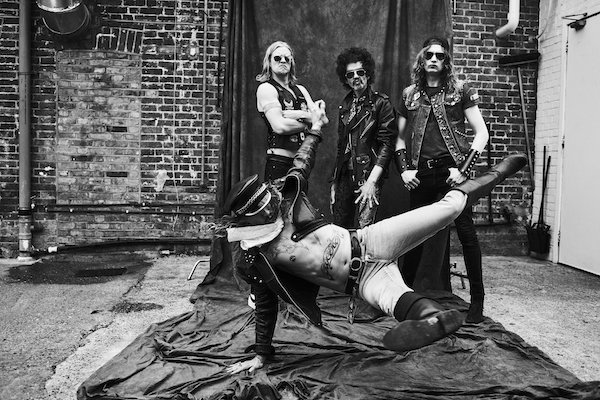
Do you believe in a thing called love? Then click the link below to book your tickets for Welcome to the Darkness. It screens at Cineworld for one night only on November 9th.
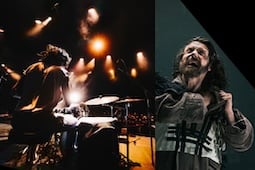
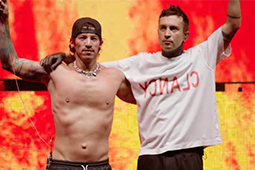
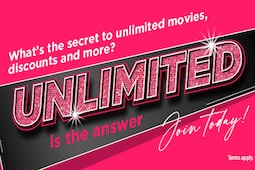
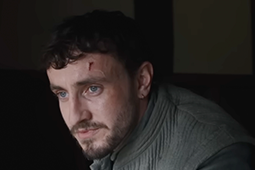
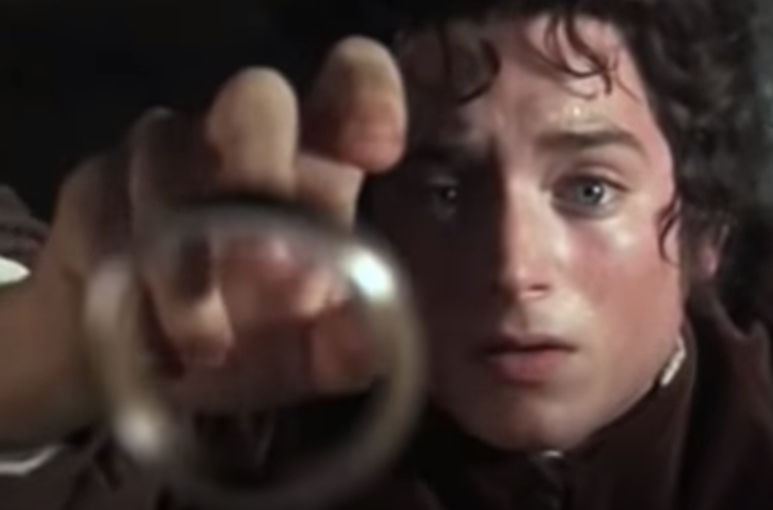
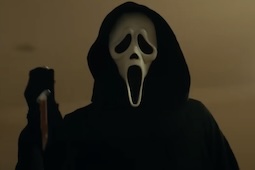
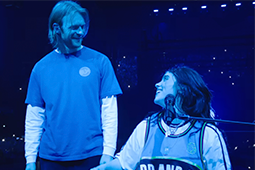
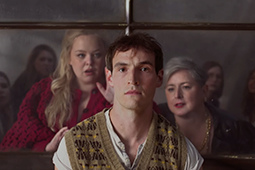
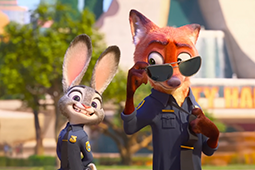
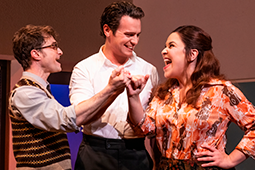
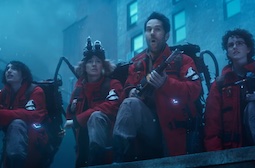


.jpg)
.png)



